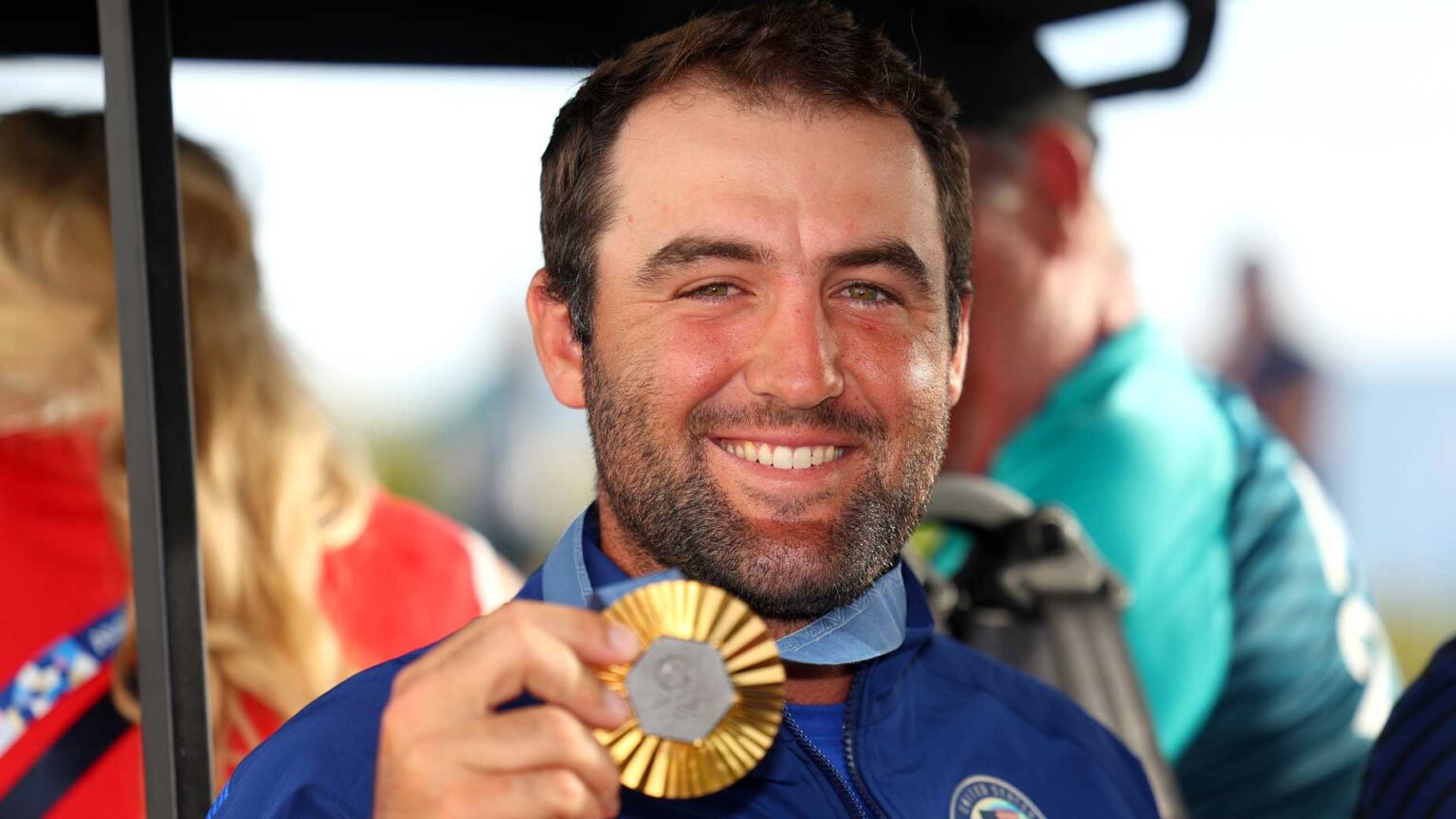The Olympic men’s golf competition wrapped up with a thrilling conclusion that saw Scottie Scheffler adding to his 2024 earnings by winning a gold medal. Despite the absence of prize money in the Olympics, top players like Rory McIlroy and Jon Rahm expressed how meaningful the event was in terms of pure competition, comparing it to the Ryder Cup. The sentiment that the Olympics provided a refreshing break from the money-driven nature of professional golf resonated with many, highlighting the value of competing for the elegant prize of an Olympic medal.
While there was no prize money for most participants, Scheffler did earn a significant payout for his gold medal victory. Athletes representing Team USA received a uniform pay structure, with gold medalists like Scheffler earning $37,500. This payout, although small compared to Scheffler’s total earnings on the PGA Tour in 2024, reflects a more substantial amount for the average U.S. worker. In contrast, other countries like Great Britain do not pay their medalists, opting instead to invest in grants and training stipends for athletes.
The distribution of earnings among medalists differs from country to country, leading to instances where lower-finishing athletes may out-earn those ahead of them. For example, in the previous Olympics, a bronze medalist from Taiwan earned significantly more than the gold medalist through the country’s tiered prize system. As discussions about athlete compensation gain traction, there is a growing movement to increase pay for Olympic competitors, reflecting the substantial revenue generated by the Games.
In track and field, efforts to pay Olympic medalists more have already begun, with World Athletics pledging increased payouts for gold, silver, and bronze medal winners at future Games. While golfers like Scheffler may not rely on Olympic earnings, they are not immune to the financial considerations at play. Viktor Hovland’s comments about the market forces in golf and the Olympics underscore the awareness among players about the financial implications of their participation in the Games.
Aside from monetary rewards, Olympic medalists also gain valuable exemptions and world ranking points, enhancing their competitive opportunities in future tournaments. The symbolic value of the medals themselves, made of precious metals like gold, silver, and bronze, adds to their significance. These medals hold intrinsic value for players, agents, and sponsors, influencing player marketability and contract negotiations in the golf industry.
The honor and prestige of winning an Olympic medal, especially a gold one, transcend monetary value, making it a priceless achievement for athletes like Scheffler. Despite the financial complexities and disparities in athlete compensation, the Olympics remain a pinnacle of sports competition where individuals can compete for glory, achievement, and national pride. The blend of athleticism, sportsmanship, and the pursuit of excellence in the Olympics embodies the values that transcend monetary rewards, making it a unique and cherished event in the world of professional sports.
